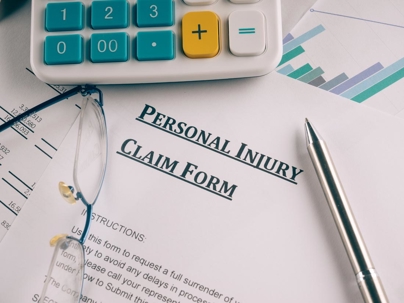By William P. Morrow, John Michael Morrow Law Firm, Opelousas, Louisiana
The decision to file a personal injury claim should never be taken lightly. Filing a claim is not simply about reporting harm—it involves presenting facts, evidence, and legal reasoning that meet specific thresholds under the law. In Louisiana, those standards are narrow, and not every injury will qualify for compensation.
When approached with an injury case, one of the first tasks is determining whether the claim holds legal weight. This involves looking beyond the emotional and physical pain to examine the facts. Injury alone does not establish liability. To move forward, a claim must be built on solid legal ground. Before initiating a lawsuit or contacting legal counsel, it is helpful to ask seven critical questions that form the foundation of any personal injury evaluation.
1. Was someone clearly at fault for the injury?
Fault must be established in order to bring a successful claim. If the injury was caused by another party’s carelessness, disregard for safety, or failure to meet legal responsibilities, the first box is potentially checked. However, if the incident was a result of chance or the injured party’s own misstep, fault may not be assignable. Personal responsibility matters in these evaluations.
2. Was there a legal duty of care?
Duty of care is the legal responsibility one party has to avoid causing harm to another. In the workplace, employers are obligated to provide a reasonably safe environment. On public property, owners must maintain conditions that prevent foreseeable harm. Without this recognized legal relationship between the involved parties, a claim may lack merit.
3. Can the injury be directly linked to the event?
Medical records play a central role in this analysis. There must be clear and consistent documentation showing that the injury occurred as a result of the incident in question. If medical treatment was delayed, or if the injury worsened due to unrelated causes, the connection may be challenged. Establishing a clear cause-and-effect relationship between the incident and the injury is non-negotiable in court.
4. Are there measurable damages?
Legal compensation is tied to specific losses. These can include medical expenses, lost wages, and long-term disability. Without tangible proof of financial harm or permanent impact, the claim may fall short of legal compensation thresholds. Documentation such as bills, receipts, and employer records becomes essential in these cases.
5. Was the claim filed within the legal time limit?
In Louisiana, the statute of limitations for personal injury claims is one year from the date of the incident. This time limit applies to most types of injuries, including those sustained at work. Delaying legal action beyond this period generally results in dismissal, regardless of how severe the injury may be. Timeliness is critical.
6. Is there adequate supporting evidence?
Strong cases are supported by witness statements, photos, video footage, accident reports, and physical evidence. Even when the story is credible, the lack of corroborating details can hurt the outcome. A strong legal case rests on documentation. Without it, the situation becomes a matter of opinion—and courts require more than belief to render a decision.
7. Was the injury related to work or employment duties?
Injuries that occur in the course of employment may qualify for workers’ compensation coverage. However, this depends on when and how the injury occurred. Travel-related injuries, off-site job responsibilities, and employer-mandated activities may fall under this category. Determining whether the injury arose out of work duties requires analysis of contracts, schedules, and employer directives.
These questions are not just theoretical. They form the legal structure around which personal injury claims are built. In the workplace context, additional layers of complexity are introduced. Louisiana’s workers’ compensation laws apply differently depending on whether an individual was on the clock, traveling for work, using employer equipment, or following direct orders.
For example, an employee injured in a car accident may or may not be eligible for workers’ compensation. The deciding factor is often whether the travel was part of job duties. Similarly, an injury that occurs at a job site may be denied if the worker was not authorized to be there or was engaging in unsafe behavior that violated policy.
Employers, insurance carriers, and legal teams evaluate these issues closely. The presence of an injury does not guarantee a payout. Proof must be provided at every step. It must be clear, consistent, and within the guidelines of Louisiana law.
Starting a legal claim without this preparation can lead to frustration and wasted time. Understanding the legal framework increases the likelihood of a fair outcome. It also avoids unnecessary legal battles that consume resources without producing results.
The purpose of a personal injury claim is not to place blame without merit—it is to determine whether the circumstances of an incident justify compensation under the law. That process begins with careful, factual assessment. When the answers to the questions above align, a legal claim becomes more than a personal grievance—it becomes a viable path toward resolution.
Not every injury leads to a case. But every potential case should start with the right questions. That is the foundation of lawful, meaningful action.
The post Do You Actually Have a Case? 7 Questions to Ask Before Pursuing a Personal Injury Claim appeared first on John Michael Morrow Law Firm.

